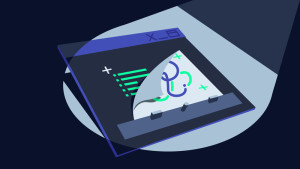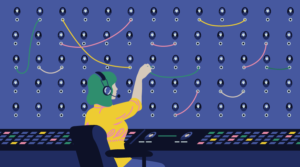 Procrastination is a plague we all face at some point in our lives and work. Once you’ve entered the procrastination cycle, it can be a difficult situation to push yourself out of. But, believe it or not, there can be some benefits that come with procrastinating, if you’re able to work it to your advantage.
Procrastination is a plague we all face at some point in our lives and work. Once you’ve entered the procrastination cycle, it can be a difficult situation to push yourself out of. But, believe it or not, there can be some benefits that come with procrastinating, if you’re able to work it to your advantage.
To start, let’s take a look at some of the causes of procrastination.
The Causes of Procrastination
There are many things that can cause procrastination, and the reasons each of us tend to put things off can be vastly different for each person. Some common reasons why you might procrastinate include:
- You have tasks or work to do that you really can’t stand doing.
- You’re completely overwhelmed by the amount of work on your plate.
- You’re fixated on being perfect and producing a perfect result.
- You have a fear of failure (or even a fear of success) that stops you in your tracks.
- You are utterly bored with what you’re doing.
- You’re waiting for inspiration to get started.
- You overestimate the amount of time you have to complete the work.
- You think you will produce a better result if you wait until you’re working under pressure.
Procrastination can come from anywhere, and many times we don’t anticipate it coming, so we can’t head it off effectively. And if it hits us at the right (or wrong) time, the impact can be detrimental.
The Negative Consequences of Procrastination
If you let your procrastination get the best of you, there can certainly be some damaging results:
- Discouragement
- Falling behind
- Mental exhaustion
- Decreased self-confidence
- Feelings of dissatisfaction with our work
- Anxiety
- Increased feelings of overwhelm
- Negative impact on relationships
- Missed deadlines and lost work
But is procrastination really all bad? No! And here’s how you can make it work for you.
Using Structured Procrastination to Get More Done
What do you do when you are putting off a specific task? Usually, we turn to something else on our lists that we consider less important. So we’re still being productive, just not in the way we feel we need to be.
But, if you reorganize your task list so your commonly procrastinated tasks are not front and center taunting you, you can trick yourself into completing the things you really need to get done.
John Perry, a professor of philosophy at Stanford University, calls this “structured procrastination.” As Perry explains, structured procrastination means shaping the structure of our tasks so the order of importance deceives our minds. Basically, using a common character flaw among procrastinators (self-deception) to counteract the impact of procrastination.
For example, instead of listing the biggest priorities on the top of our lists and giving them the most attention (and stress surrounding completion of those tasks), if we put the focus on less important tasks we are likely to move down the list to find (and more willing accomplish) the more important tasks.
After reading about structured procrastination, I realized that I tend to do this already without consciously thinking about it. I lump all of my tasks together, and mark some high priority that definitely aren’t. This allows me to feel like I have the choice about whether to tackle a task now or later if there are several that are all equal in importance. And because I feel less stress and necessity surrounding the high-priority tasks, I’m more likely to do them right away. It actually works!
Do you incorporate anything like structured procrastination to encourage yourself to get more done? Does it work for you?
Image credit: zbyszek80
Alyssa Gregory is a digital and content marketer, small business consultant, and the founder of the Small Business Bonfire — a social, educational and collaborative community for entrepreneurs.




